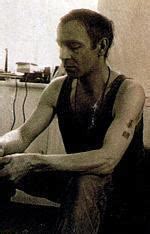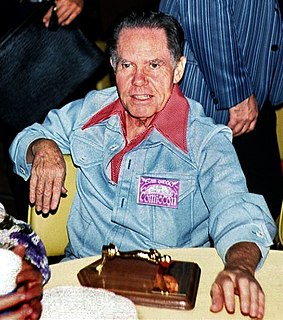A Quote by Luljeta Lleshanaku
Words are delicate instruments: How to use them so that, after having read the poem, the taste remaining is not of the words themselves, but of a thought, a situation, a parallel reality? If not used appropriately, words in poetry are like the ugly remains of food after eating. What I mean is that readers will reject words if they don't serve to shift attention from themselves to somewhere else.
Related Quotes
The dictionary is like a time capsule of all of human thinking ever since words began to be written down. And exploring where words have come from can increase your understanding of the words themselves and expand your understanding of how to use the words, and all of this change happens in your thinking when you read the words.
A writer is a person who cares what words mean, what they say, how they say it. Writers know words are their way towards truth and freedom, and so they use them with care, with thought, with fear, with delight. By using words well they strengthen their souls. Story-tellers and poets spend their lives learning that skill and art of using words well. And their words make the souls of their readers stronger, brighter, deeper.
I go through the text making sure I haven't used any big words. If I find any fancy adjectives have crept in, I replace them with small words like 'nice' and 'big'. I've liked these words ever since I was told not to use them in English class at school. After that, I check that the sentences are short so as people won't get confused and I shorten all the chapters so they won't get bored. I can't read anything complicated these days, my attention span is too short. Everyone else probably feels the same.
Scientists often invent words to fill the holes in their understanding.These words are meant as conveniences until real understanding can be found. ... Words such as dimension and field and infinity ... are not descriptions of reality, yet we accept them as such because everyone is sure someone else knows what the words mean.
For we let our young men and women go out unarmed in a day when armor was never so necessary. By teaching them to read, we have left them at the mercy of the printed word. By the invention of the film and the radio, we have made certain that no aversion to reading shall secure them from the incessant battery of words, words, words. They do not know what the words mean; they do not know how to ward them off or blunt their edge or fling them back; they are prey to words in their emotions instead of being the masters of them in their intellects.
I don't know that I would say words are more political now, particularly after Donald Trump has come into office. I will say that what I notice is that people pay more attention to the words that politicians use. They really want to understand the full nuance, the connotative meanings of those words.
Kids use words in ways that release hidden meanings, revel the history buried in sounds. They haven't forgotten that words can be more than signs, that words have magic, the power to be things, to point to themselves and materialize. With their back-formations, archaisms, their tendency to play the music in words--rhythm, rhyme, alliteration, repetition--children peel the skin from language. Words become incantatory. Open Sesame. Abracadabra. Perhaps a child will remember the word and will bring the walls tumbling down.
There's something nearly mystical about certain words and phrases that float through our lives. It's computer mysticism. Words that are computer generated to be used on products that might be sold anywhere from Japan to Denmark - words devised to be pronounceable in a hundred languages. And when you detach one of these words from the product it was designed to serve, the words acquires a chantlike quality.
I want you to understand the words. I want you taste the words. I want you to love the words. Because the words are important. But they're only words. You leave them on the paper and you take the thoughts and put them into your mind and then you as an actor recreate them, as if the thoughts had suddenly occurred to you.
You don't realize how language actually interferes with communication until you don't have it, how it gets in the way like an overdominant sense. You have to pay much more attention to everything else when you can't understand the words. Once comprehension comes, so much else falls away. You then rely on their words, and words aren't always the most reliable thing.







































